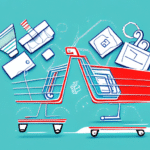The 10 Best Ecommerce Shopping Carts for Your Business
If you're looking to start an online business or revamp your existing online store, choosing the right ecommerce shopping cart is crucial to your success. A shopping cart is the software that powers your ecommerce website, responsible for everything from product listing, order management, payment processing, shipping, and more. With numerous options available, determining the best fit for your business can be daunting. This article covers the top 10 ecommerce shopping carts, providing an in-depth comparison of their key features, pros and cons, and other factors to consider, helping you make an informed decision.
Introduction: The Importance of Choosing the Right Ecommerce Shopping Cart
Selecting the appropriate ecommerce shopping cart is vital for the success of your online business. A well-designed shopping cart can create a seamless user experience, improve conversions, increase sales, and streamline operations. Conversely, a poorly designed shopping cart can lead to high cart abandonment, lost sales, and a damaged brand reputation. Beyond features and functionality, consider factors such as ease of use, scalability, customization options, and cost. This article examines these factors in detail and compares the top 10 ecommerce shopping carts.
Security is a paramount consideration when choosing an ecommerce shopping cart. With the rise of online fraud and data breaches, it's essential to protect your customers' sensitive information. Opt for shopping carts that offer SSL encryption, PCI compliance, and other security features to safeguard customer data. Additionally, implementing two-factor authentication and other security measures can protect your business from cyber threats. Prioritizing security helps build customer trust and protects your business from potential financial and reputational damage.
Key Features to Look for in an Ecommerce Shopping Cart
When selecting an ecommerce shopping cart, consider the following key features:
- Multiple payment options
- Shipping options and integrations
- Inventory management
- Product management
- Customization
- SEO optimization
- Mobile responsiveness
- Security
- Customer support
Let's delve deeper into each of these features.
Multiple Payment Options
Offering a variety of payment methods can boost conversions by making it easier for customers to complete purchases. Look for a shopping cart that supports popular payment gateways such as PayPal, Stripe, and Authorize.Net, as well as regional payment options to cater to a global audience.
Shipping Options and Integrations
A robust shopping cart should integrate seamlessly with major shipping carriers like USPS, FedEx, and UPS. It should also provide tools for managing shipping rates, taxes, and tracking orders effectively.
Inventory Management
An efficient inventory management system helps track stock levels, automatically update quantities, and set low-stock alerts to prevent product shortages.
Product Management
The shopping cart should allow you to easily add, edit, and delete products, as well as manage product attributes such as size, color, and pricing to maintain an organized catalog.
Customization
Choose a shopping cart that offers extensive customization options, including themes, templates, and design elements like fonts and colors, allowing you to tailor the look and feel of your website to match your brand.
SEO Optimization
SEO-friendly features are essential for driving organic traffic. Look for shopping carts that provide tools for search engine optimization, such as customizable meta tags, XML sitemaps, and clean URL structures.
Mobile Responsiveness
With the increasing use of mobile devices for online shopping, ensure that your shopping cart is optimized for mobile. Features should include responsive design, a mobile-friendly checkout process, and support for mobile payment options.
Security
Security is a critical feature for any ecommerce shopping cart. Ensure it supports SSL encryption, PCI compliance, and fraud detection to protect both your business and your customers.
Customer Support
Reliable customer support is essential. Look for a shopping cart that offers 24/7 assistance through multiple channels such as email, phone, and live chat. Additionally, a comprehensive knowledge base or community forum can be invaluable for troubleshooting and peer support.
Comparison of the Top 10 Ecommerce Shopping Carts
Having explored the key features to consider, let's examine the top 10 ecommerce shopping carts available today.
1. Shopify: Pros and Cons
Shopify is one of the most popular ecommerce platforms, renowned for its ease of use, excellent customer support, and extensive app ecosystem. It offers a wide range of themes and apps to enhance functionality. However, Shopify can be expensive, especially when considering transaction fees and some limited customization options.
2. WooCommerce: Pros and Cons
WooCommerce is a free, open-source plugin for WordPress that offers high customization and flexibility. It supports a vast array of extensions and integrations, allowing you to tailor your store precisely. However, WooCommerce can be complex to set up and maintain, often requiring additional plugins for full functionality.
3. Magento: Pros and Cons
Magento is a powerful, enterprise-level ecommerce solution known for its scalability and extensive customization options. It offers features like multi-store support, advanced reporting, and robust APIs. The downside is that Magento can be costly and requires significant technical expertise to set up and manage effectively.
4. BigCommerce: Pros and Cons
BigCommerce is an all-in-one ecommerce platform designed for small to medium-sized businesses. It includes multi-channel selling, built-in marketing tools, and high-level security. However, BigCommerce can be pricey, and some users find the customization options limited compared to other platforms.
5. Volusion: Pros and Cons
Volusion is a user-friendly ecommerce platform ideal for small to medium-sized businesses. It offers features like drag-and-drop design, built-in SEO tools, and mobile responsiveness. Nevertheless, Volusion can be expensive, and customization options may be limited for some features.
6. 3dcart: Pros and Cons
3dcart is tailored for small to medium-sized businesses, providing unlimited products, themes, and bandwidth, along with built-in marketing tools. However, it can be costly, and some users may find the customization options restrictive.
7. Ecwid: Pros and Cons
Ecwid is a flexible, free shopping cart that can be integrated into your existing website. It supports multi-channel selling, mobile responsiveness, and numerous integrations. The drawback is that customization options are somewhat limited for certain features.
8. OpenCart: Pros and Cons
OpenCart is a free, open-source ecommerce platform offering high customization and scalability. It includes multi-store support and a wide range of themes and plugins. However, OpenCart can be complex to set up and manage, requiring technical expertise.
9. PrestaShop: Pros and Cons
PrestaShop is a free, open-source solution that is highly customizable and scalable. It provides features like multi-store support, advanced reporting, and extensive customization options. On the downside, PrestaShop can be complex and costly to set up and maintain, needing technical expertise.
10. Squarespace: Pros and Cons
Squarespace is a website builder that includes ecommerce functionality. It's known for its beautiful, modern templates and user-friendly interface. Squarespace also offers built-in SEO tools and a mobile-responsive design. However, it may be limited in customization options and might not suit larger ecommerce businesses.
11. Big Cartel: Pros and Cons
Big Cartel is a simple, affordable ecommerce solution designed for artists and makers. It offers customizable themes, inventory tracking, and order management. However, it may not be suitable for larger ecommerce businesses and might require additional plugins for certain features.
Conclusion: Which Ecommerce Shopping Cart is Right for Your Business?
Choosing the right ecommerce shopping cart depends on your specific business needs and goals. If you seek an all-in-one solution that's easy to use, Shopify or BigCommerce may be the best fit. For highly customizable solutions that integrate with existing websites, WooCommerce or OpenCart are excellent choices. Consider factors such as budget, the number of products you plan to sell, and your technical expertise. Testing different options and reading user reviews can help you make a final decision.
Additionally, assess the level of customer support each provider offers. Opt for platforms that provide 24/7 support and resources like tutorials and forums to help troubleshoot any issues. Consider the scalability of the platform—ensure it can grow with your business as you add more products and customers. By evaluating all these factors, you can choose the ecommerce shopping cart that best aligns with your business objectives.
Factors to Consider Before Choosing an Ecommerce Shopping Cart
Before selecting an ecommerce shopping cart, keep the following factors in mind:
- Budget and pricing
- Number of products and SKUs
- Integration with third-party tools
- Scalability and growth potential
- Technical expertise and support
Another critical factor is the level of customization and flexibility the shopping cart offers. Some platforms may have limited design options or restrict certain feature additions. Choose a shopping cart that allows sufficient customization to match your brand and meet your business needs. Additionally, ensure the platform is user-friendly for both you and your customers. A complicated checkout process or difficult navigation can result in lost sales and frustrated customers.
How to Migrate from One Ecommerce Shopping Cart to Another
If you've decided to switch to a new ecommerce shopping cart, follow these steps to ensure a smooth transition:
- Research and choose a new ecommerce shopping cart that meets your needs.
- Export your product and customer data from your current shopping cart.
- Import your data into the new shopping cart.
- Set up your payment gateway and shipping options.
- Test the new shopping cart thoroughly and troubleshoot any issues.
- Redirect your old shopping cart URLs to the new URLs to preserve SEO rankings.
Be aware that migration may cause some downtime on your website. To minimize disruption, schedule the migration during low-traffic periods. Communicate the migration to your customers in advance, providing necessary information such as new login credentials or changes to shipping options.
Tips for Optimizing Your Ecommerce Shopping Cart for Conversions
Enhance your ecommerce shopping cart's performance with these optimization tips:
- Simplify your checkout process: Reduce the number of steps to complete a purchase to minimize cart abandonment.
- Provide clear product descriptions and images: High-quality images and detailed descriptions help customers make informed decisions.
- Offer discounts and promotions: Incentives like discounts and special offers can encourage purchases.
- Include customer reviews and social proof: Testimonials and reviews build trust and influence buying decisions.
- Provide excellent customer service and support: Responsive support can resolve issues quickly and enhance customer satisfaction.
- Track and analyze your website data: Use analytics to identify areas for improvement and optimize your store accordingly.
By implementing these tips and selecting the right ecommerce shopping cart for your business, you can create a successful online store that maximizes sales and ensures customer satisfaction. Happy selling!






















